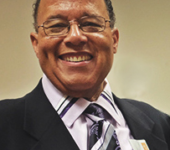• by Bradley Scott, Ph.D. • IDRA Newsletter • May 2009


This article makes the case that one of the important areas of focus for change – teaching quality – must embrace cultural relevance as a necessary and absolute component. In fact, teaching in public schools cannot and should not be considered high quality if it is not culturally relevant. Why is that so?
I have previously described the Six Goals of Educational Equity and School Reform (Scott, 2000) that are a guide for ensuring that public schools work for all students regardless of their diversity. Systemic equity is defined as “the transformed ways in which systems and individuals habitually operate to ensure that every learner – in whatever learning environment that learner is found – has the greatest opportunity to learn, enhanced by the resources and support necessary to achieve academic competence, excellence, independence, responsibility and self-sufficiency for school and for life” (Scott, 2000).
At the onset and throughout every aspect of creating quality schools is the regular work to ensure success and graduation for all diverse learners. The Quality Schools Action Framework would have, as an added dimension at its entrance point, the Goals of Educational Equity and School Reform.
This is important because when education stakeholders want to create success for all learners, then those who provide high quality education do so with the learner in mind. If one accepts that learners are diverse, they do not necessarily learn in the same way, and all can achieve and excel, then one also must accept something else. While good teaching can be effective for all learners, it may not be if it is approached in a rigid, fixed, non-responsive way for students who are diverse in language, culture, socialization and many other dimensions.
Diverse students do learn in many ways. The way they learn, the way they bring skills to bear in the learning process, their manner of engaging the learning process, and how they interact with teachers and other students are all cultural in nature.
Teachers need to understand this about their students, and students must come to know this about their teachers. The encounter of teaching in the classroom is not just intellectual; it is also cultural. It needs, therefore, an approach that is culturally competent requiring powerfully dynamic and responsive pedagogy.
Many scholars have made similar assertions in some form (Ladson-Billings, 1995; Wortham and Contreras, 2002; Howard, 2003; Trumbull and Pacheco, 2005; Hill and Flynn, 2006). It appears that many teachers, however, are still not prepared to provide educational experiences that effectively serve diverse students in ways that move them to high achievement and other positive outcomes.
Dr. Laura Goe, Dr. Courtney Bell, and Ms. Olivia Little note in Approaches to Evaluating Teacher Effectiveness, “Given that teachers’ roles involve much more than simply providing subject-matter instruction, it is appropriate to consider a broader and more comprehensive definition of effective teachers consisting of five points and formulated by evaluating discussions of teacher effectiveness in the research literature as well as in policy documents, standards and reports” (2008).
They provide a five-point definition of effective teaching based upon the current research. One should note that within the five points, three speak specifically to culturally relevant pedagogy.
- Effective teachers have high expectations for all students and help students learn, as measured by value-added or other test-based growth measures or by alternative measures.
- Effective teachers contribute to positive academic, attitudinal and social outcomes for students, such as regular attendance, on-time promotion to the next grade, on-time graduation, self-efficacy and cooperative behavior.
- Effective teachers use diverse resources to plan and structure engaging learning opportunities; monitor student progress formatively, adapting instruction as needed; and evaluate learning using multiple sources of evidence.
- Effective teachers contribute to the development of classrooms and schools that value diversity and civic-mindedness.
- Effective teachers collaborate with other teachers, administrators, parents and education professionals to ensure student success, particularly the success of students with special needs and those at high risk of failure.
Quality teaching that works just for some cannot be the goal or outcome of schools. Quality teaching has to be effective in supporting all students in realizing academic, civic, social and life success. Quality teaching is absolutely necessary to move all diverse students to high outcomes. And teaching must be culturally relevant for the learners who encounter it to be high quality.
Resources
Goe, L., and C. Bell, O. Little. Approaches to Evaluating Teacher Effectiveness: Research Synthesis (Chicago, Ill.: National Comprehensive Center for Teacher Quality, 2008).
Hill, J.D., and K.M. Flynn. Classroom Instruction that Works with English Language Learners (Alexandria, Va.: Association for Supervision and Curriculum Development, 2006).
Howard, T.C. “Culturally Relevant Pedagogy: Ingredients for Critical Teacher Reflection,” Theory Into Practice (Summer 2003). pp. 43-51.
Ladson-Billings, G. “But That’s Just Good Teaching! The Case for Culturally Relevant Pedagogy,” Theory Into Practice (Summer 1995). pp. 159-165.
Robledo Montecel, M. “A Quality Schools Action Framework – Framing Systems Change for Student Success,” IDRA Newsletter (Intercultural Development Research Association, November-December 2005).
Scott, B. “We Should Not Kid Ourselves: Excellence Requires Equity,” IDRA Newsletter (Intercultural Development Research Association, February 2000).
Trumbull, E., and M. Pacheco. Leading with Diversity: Cultural Competencies for Teacher Preparation and Professional Development (Providence, R.I.: The Education Alliance at Brown University and Pacific Resources for Education and Learning, 2005).
Wortham, S., and M. Contreras. “Struggling Toward Culturally Relevant Pedagogy in the Latino Diaspora,”Journal of Latinos and Education (2002) Volume 1, Issue 2).
Bradley Scott, Ph.D., is the director of the IDRA South Central Collaborative for Equity. Comments and questions may be directed to him via e-mail at feedback@idra.org.
[©2009, IDRA. This article originally appeared in the May 2009 IDRA Newsletter by the Intercultural Development Research Association. Permission to reproduce this article is granted provided the article is reprinted in its entirety and proper credit is given to IDRA and the author.]


